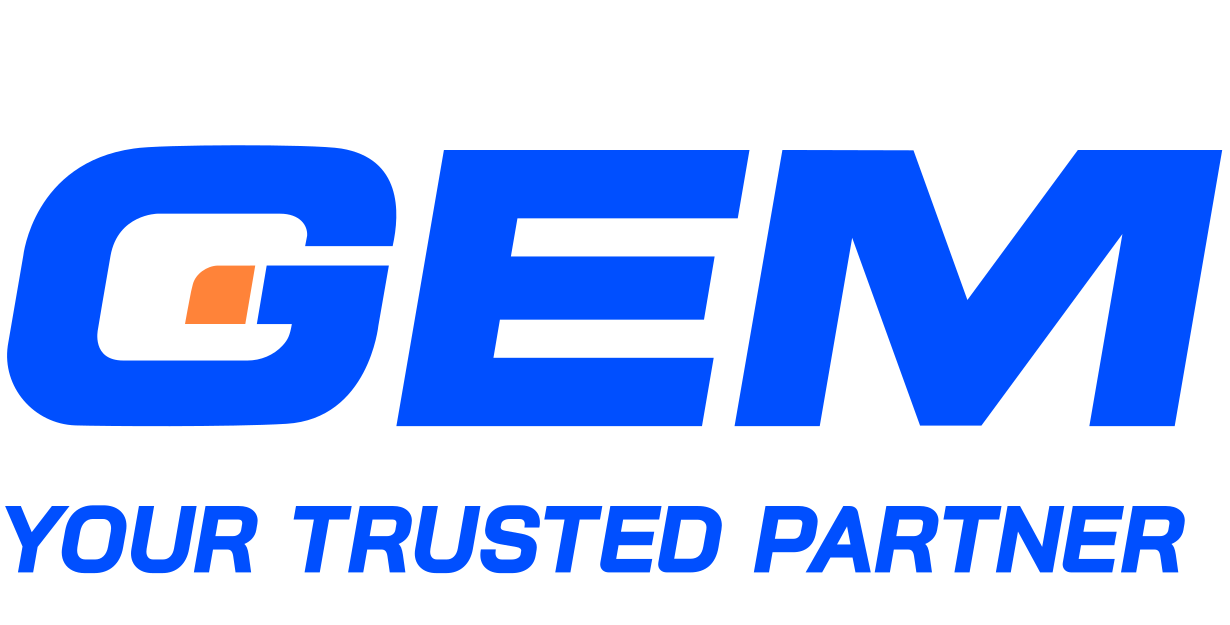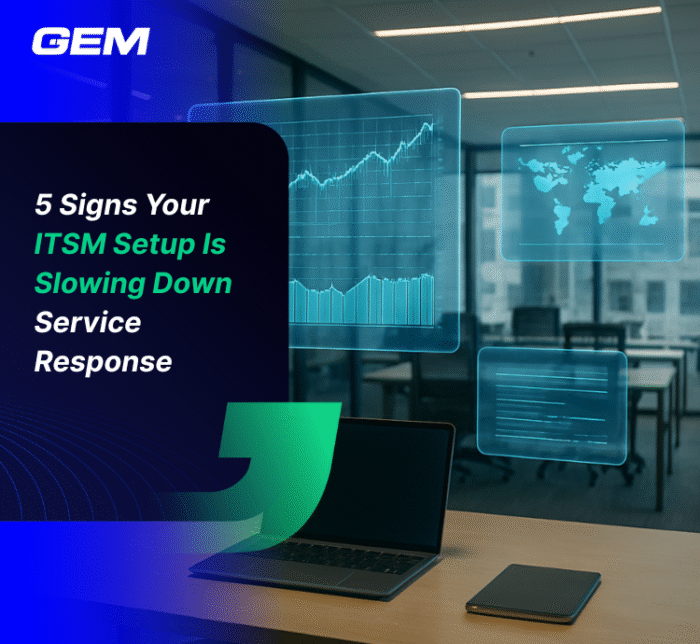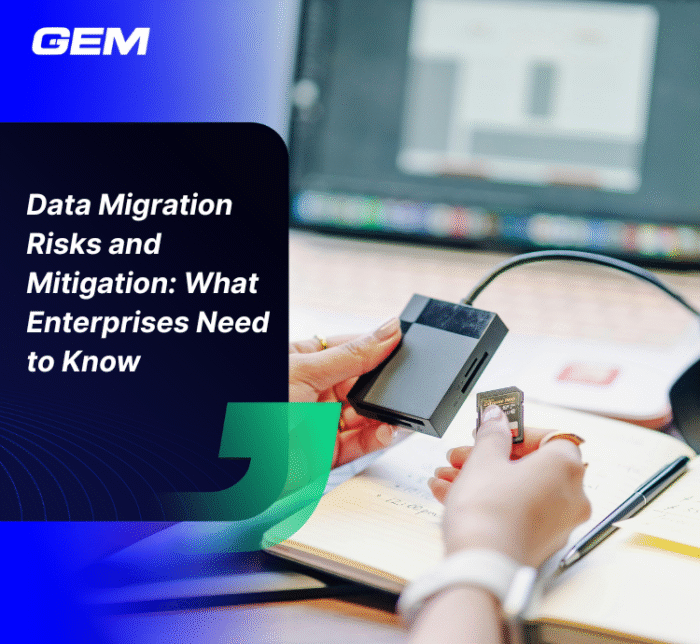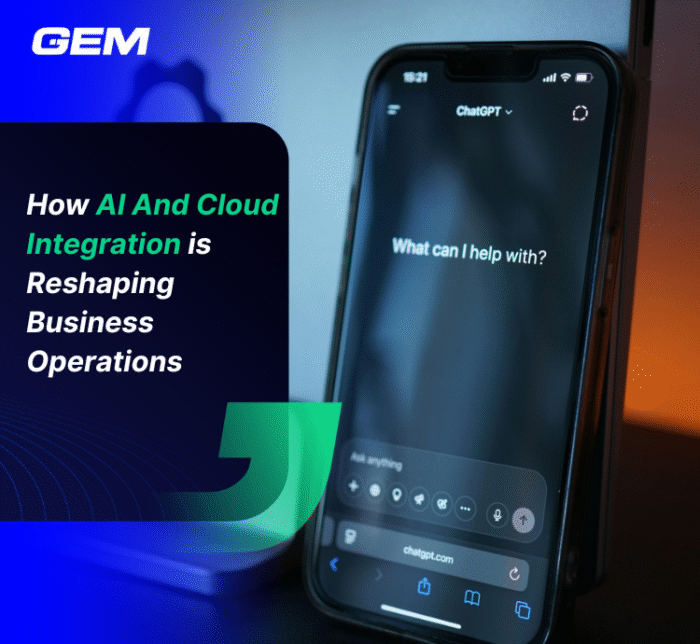Contents
- What is Dedicated Software Development?
- Operating Model: How A Dedicated Development Team Works
- Advantages of Using Dedicated Development Team Services
- When to Choose a Dedicated Development Team?
- Risks and Considerations When You Hire Dedicated Remote Development Team
- Top 6 Dedicated Software Development Company & Team Services in 2025
- How to Evaluate and Select the Right Partner?
- Conclusion
Many companies are rethinking how they build software in 2025, and one approach gaining traction is working with a dedicated development company. These teams bring flexibility, domain expertise, and operational scale without the overhead of managing everything in-house. In this article, we look at how the model works, when it makes sense, what risks to consider, and which providers are leading the space this year. We’ll also cover what to look for when choosing a partner, and how to align the team with your business goals. Let’s start with how dedicated development teams are structured and operate.
What is Dedicated Software Development?

A dedicated development company provides a remote, long-term software team that works exclusively on a client’s project. The relationship is structured as a strategic partnership, where the external provider takes on administrative responsibilities, such as HR, payroll, and compliance, while the client gains direct access to a full-time, pre-vetted team. These teams are typically cross-functional, including roles like developers, designers, QA engineers, and project managers. Businesses choose this model to scale development capacity, access specialized talent, and maintain continuity over the course of complex or evolving projects without the overhead of building and managing an in-house team from scratch.
Operating Model: How A Dedicated Development Team Works

A dedicated development team is structured to function as a seamless extension of the client’s internal organization. Here’s how it operates in practice:
Exclusive Focus
The team is assigned to a single client, working on one project at a time. This helps accelerate knowledge transfer, maintain project continuity, and drive execution with fewer context switches.
Tailored Expertise
Each team is assembled based on the technical and domain requirements of the project. This may include front-end and back-end developers, UI/UX designers, QA engineers, DevOps specialists, and business analysts, ensuring the team structure aligns with project goals from day one.
Integrated Workflow
The team uses the client’s preferred tools, communication channels, and delivery processes. Daily standups, sprint reviews, and shared documentation are common practices that support transparency and alignment.
Vendor-Managed Operations
The dedicated development company handles all operational logistics – recruitment, onboarding, infrastructure, equipment, payroll, and legal compliance. This allows the client to focus on product direction and delivery, not administrative overhead.
Ongoing Collaboration
The engagement is long-term, often spanning months or years. This continuity allows the external team to build deep product knowledge and contribute to strategic planning, not just execution.
Advantages of Using Dedicated Development Team Services

Dedicated development teams are increasingly becoming a core delivery model for companies with complex software needs. This approach offers a set of operational and strategic benefits that support both speed and scale, especially in markets where time, talent, and technical depth are decisive.
Faster Time-to-Market
Companies facing tight timelines or product launch windows can ramp up development capacity without waiting through traditional hiring cycles. For example, a fintech provider expanding into a new region may need to build out localized features within a quarter. A dedicated team can be onboarded and fully operational in weeks, accelerating delivery without compromising on quality.
Cost-Efficient Access to Talent
Instead of incurring the recurring costs of recruitment, onboarding, and retention, businesses work with pre-vetted professionals while the vendor handles administrative and HR overhead. This model shifts fixed costs to variable ones, particularly useful for businesses navigating uncertain demand cycles or managing burn rate in early-stage growth.
Scalability on Demand
As project scopes evolve, dedicated teams can be scaled up or down with minimal disruption. For instance, a logistics platform undergoing a major architecture shift may initially need cloud engineers and DevOps specialists, then pivot toward front-end and QA roles during UI modernization. The model adapts to each phase without reinitiating hiring processes.
Increased Productivity Through Role Clarity
Dedicated teams operate with clear roles, streamlined communication, and full ownership of delivery outcomes. This frees internal teams to focus on product vision, GTM strategy, and core business operations. In practice, this setup reduces misalignment and rework – common issues in fragmented delivery environments.
Direct Control Over Execution
Unlike project-based outsourcing, clients manage the backlog, set priorities, and maintain visibility into progress. This is particularly relevant for companies building proprietary platforms or industry-specific tools, where intellectual property and product direction need to stay in-house.
Access to Specialized Skill Sets
Some roles, such as machine learning engineers, cybersecurity experts, or platform architects, are hard to recruit and retain. Dedicated development partners maintain active talent pipelines and can assemble niche teams faster than most internal HR functions.
Operational Focus on Strategic Outcomes
By offloading delivery execution to a trusted team, internal stakeholders can shift their attention toward roadmap planning, user experience, and feature innovation. This is common in SaaS companies where product-market fit is clear, but continuous iteration is needed to stay competitive.
When to Choose a Dedicated Development Team?
The dedicated team model fits best when software delivery requires continuity, flexibility, and direct oversight. It’s especially relevant for companies navigating growth, transformation, or time-sensitive product roadmaps. Common scenarios include:
Long-Term Projects
For sustained development efforts, such as building a multi-module enterprise platform or maintaining a complex product ecosystem, a dedicated team offers continuity, deeper product knowledge, and long-term cost advantages over ad hoc outsourcing or in-house hiring.
Growing Startups
Startups with validated business models often need to scale quickly while keeping internal teams lean. A dedicated team brings on-demand capacity while maintaining the agility needed in early product cycles.
Changing Requirements
When product scope is expected to evolve, due to shifting market needs, regulatory changes, or iterative discovery, dedicated teams provide the flexibility to realign sprint goals, team composition, and priorities without renegotiating contracts.
Enterprise Modernization Programs
Large organizations often require parallel tracks for legacy system migration, API management, or cloud-native rollouts. A dedicated team can handle one or more streams independently, while aligning with internal architecture and security frameworks.
Product Launch or MVP Cycles
In pre-launch stages, companies need execution speed without sacrificing technical quality. Dedicated teams can focus exclusively on building the MVP, shortening time-to-market while internal teams handle go-to-market planning.
Teams Working Across Time Zones (Follow-the-Sun Models)
For global businesses, maintaining development velocity across time zones is critical. Dedicated teams can be structured to complement internal teams, handing off tasks seamlessly through staggered hours and continuous delivery cycles.
Risks and Considerations When You Hire Dedicated Remote Development Team

While the dedicated team model offers strategic benefits, it comes with operational risks that need to be actively managed. These are the most common issues companies encounter:
Cultural and Communication Gaps
Remote teams working in different regions may have varied expectations around communication styles, responsiveness, or decision-making. Without clear norms and feedback mechanisms, misalignment can slow progress and affect team cohesion.
Over-reliance Without Knowledge Transfer
Relying too heavily on external teams without embedding knowledge-sharing practices can create long-term dependency. If the engagement ends abruptly or team members rotate out, internal stakeholders may struggle to maintain momentum or manage the codebase.
Security and IP Management
Working with remote teams introduces additional concerns around data protection, access control, and intellectual property. Companies must vet providers carefully, especially when handling sensitive user data, financial transactions, or proprietary algorithms.
Cost Overruns from Poorly Scoped Engagements
Without a clear product roadmap or well-defined deliverables, dedicated teams can become inefficient, leading to budget overruns. Regular backlog grooming, sprint reviews, and milestone-based reporting are essential to avoid drift.
Top 6 Dedicated Software Development Company & Team Services in 2025
GEM Corporation
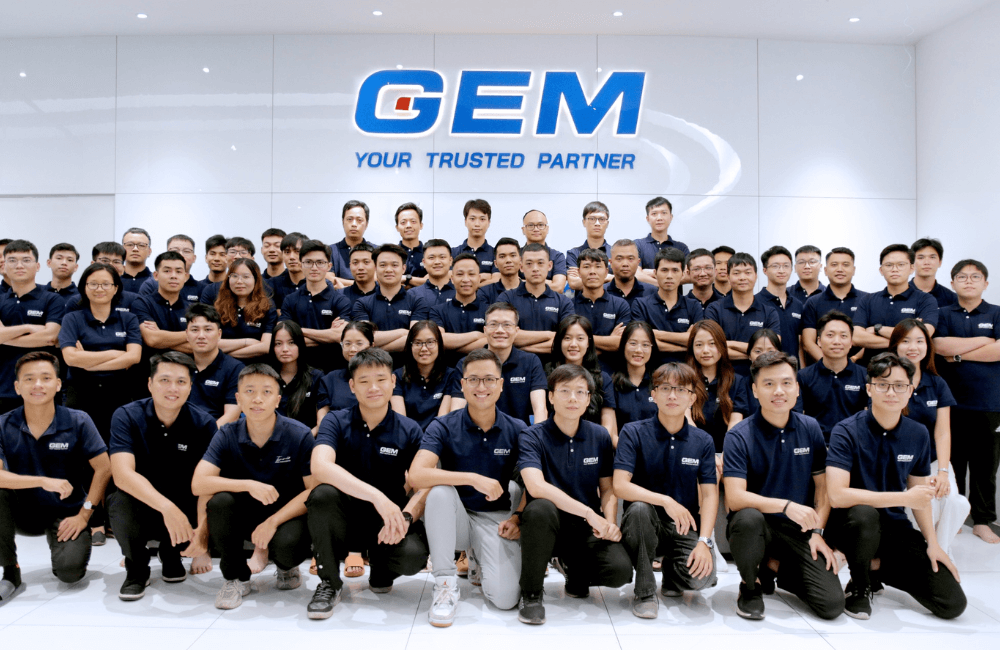
GEM Corporation is a trusted technology partner for enterprises seeking to scale with precision, speed, and long-term value. With over a decade of experience and a global presence across Japan, ANZ, Asia, the EU and the U.S., GEM delivers enterprise-grade solutions through a dedicated team model that blends domain expertise with operational flexibility. Our 500+ engineers, consultants, and data experts support clients through every phase of their digital journey, from strategy to execution, across industries such as healthcare, banking, logistics, telecom, and manufacturing.
We have successfully delivered more than 300 projects across 10+ countries, helping clients modernize legacy systems, launch new digital products, and transform data into business intelligence. Our dedicated team model is built on full-time, multidisciplinary squads that integrate seamlessly with client teams, operating under shared tools, KPIs, and agile workflows. GEM handles recruitment, training, compliance, and infrastructure, while clients retain full control over product direction and delivery priorities.
Explore more: Top ITO countries
Our portfolio spans AI-powered solutions, cloud-native platforms, end-to-end QA services, and enterprise application development, with deep capabilities in NLP, computer vision, RPA, and predictive analytics. As a certified ServiceNow and Databricks partner, we bring strategic alignment and technical depth to large-scale innovation programs. We are also recognized as an ISTQB® Gold Partner, a testament to our commitment to engineering quality at scale. GEM’s delivery model is designed for sustained collaboration, strategic alignment, and measurable business outcomes.
BairesDev
With over 4,000 engineers across 50 countries, BairesDev operates one of the largest engineering networks in Latin America. The company’s dedicated team services are structured around time zone alignment for North American clients, providing both scale and responsiveness. BairesDev has delivered over 1,200 projects for clients ranging from high-growth startups to Fortune Global 500 companies, including Google and Johnson & Johnson. Their sourcing model emphasizes the top 1% of regional talent, making them a strong fit for enterprises seeking fast ramp-up and consistent delivery across distributed teams.
- Strengths: Talent availability, enterprise-grade delivery, regional time zone alignment
- Industries: Healthcare, finance, consumer tech, logistics
Intellectsoft

Intellectsoft positions itself as a digital transformation partner for enterprises navigating large-scale modernization and innovation programs. The company combines dedicated team services with strategic IT consulting, making it suitable for clients who seek both execution and advisory support. With recognitions from Inc. and Clutch, Intellectsoft has built a strong reputation among mid-market and enterprise clients. Their teams are equipped to support full lifecycle product development, including CX design, custom software engineering, and system integration.
- Strengths: Enterprise consulting, system architecture, long-term modernization programs
- Industries: Insurance, automotive, healthcare, travel, construction
ScienceSoft
With a 35-year track record and over 4,000 projects completed, ScienceSoft brings deep experience in regulated industries such as healthcare and BFSI. The company offers ISO 9001 and ISO 27001-compliant development services, making it a reliable choice for organizations with strict security and quality requirements. ScienceSoft’s dedicated teams are often deployed for digital transformation, SaaS product development, and legacy system reengineering. Their delivery model is backed by strong governance structures and a consultative approach.
- Strengths: Compliance-ready delivery, healthcare and BFSI expertise, long-term stability
- Industries: Healthcare, banking, retail, manufacturing, logistics
Geniusee
Geniusee is a fast-scaling product development company with engineering hubs in Poland and Ukraine. Focused on Fintech and Edtech, they support startups and SMBs in need of rapid MVP development, cloud-native solutions, and AI-based product capabilities. Their dedicated teams include certified AWS engineers, data scientists, and UX/UI specialists. Geniusee’s structured discovery and onboarding phases make them a practical partner for companies at early growth stages or undergoing technical pivoting.
- Strengths: Speed-to-market, cloud and AI expertise, startup-centric delivery
- Industries: Fintech, Edtech, SaaS, e-commerce
Appinventiv
Appinventiv blends product thinking with deep technical execution, offering dedicated teams that specialize in AI-powered solutions, blockchain platforms, and scalable cloud systems. With over 3,000 products delivered and a team of 1,600+ technologists, the company supports both enterprise transformation and innovation-led growth. Their AI-first approach, combined with global delivery centers, positions Appinventiv as a go-to partner for businesses seeking to build next-gen digital products at scale.
- Strengths: AI-driven development, product innovation, global capacity
- Industries: Retail, finance, logistics, media, healthcare
How to Evaluate and Select the Right Partner?

Choosing the right dedicated development partner is a strategic decision that shapes both the pace and quality of delivery. While pricing and team size are common evaluation points, long-term success often depends on four core factors: domain expertise, governance structure, onboarding process, and execution track record.
Domain Expertise
Look for a partner with proven experience in your industry or technical vertical. This includes familiarity with relevant architectures, compliance frameworks, and user expectations. For example, building a digital health platform requires knowledge of regulatory standards and patient data handling, while an e-commerce backend demands fluency in high-availability systems and payment integrations. Domain alignment reduces ramp-up time and improves decision quality during development.
Governance Model
A clear governance structure defines how the team is managed, how decisions are made, and how accountability is maintained. Evaluate how the partner handles day-to-day operations, sprint planning, backlog prioritization, and issue resolution. Strong governance keeps development aligned with business goals and avoids operational drift, especially in long-running or multi-team engagements.
Onboarding Process

A structured onboarding process is a signal of operational maturity. This includes how the partner sets up communication channels, configures access, aligns on tools and workflows, and integrates with your internal team. Efficient onboarding minimizes delays and gets the team productive quickly. Ask for a walkthrough of their typical ramp-up timeline and integration checkpoints.
Track Record and References
Past performance is a strong predictor of future outcomes. Review case studies, client testimonials, and third-party ratings. Ask for references from companies with similar project scopes or operating models. Inquire about delivery consistency, responsiveness, and ability to handle changes mid-project. A credible partner will be transparent about their past work and willing to connect you with current or former clients.
Conclusion
Choosing a dedicated development company in 2025 calls for a clear view of priorities, whether it’s delivery speed, domain alignment, or long-term scalability. The right partner brings more than technical know-how; they operate as an extension of your team, with shared accountability and structured collaboration. Models vary, but the fundamentals remain: transparent governance, adaptive capacity, and a focus on product outcomes. Each company profiled brings a distinct approach to solving complex software challenges. GEM offers a proven model shaped by global delivery experience and sector-specific insight. Speak with us to explore a dedicated team solution tailored to your roadmap.
